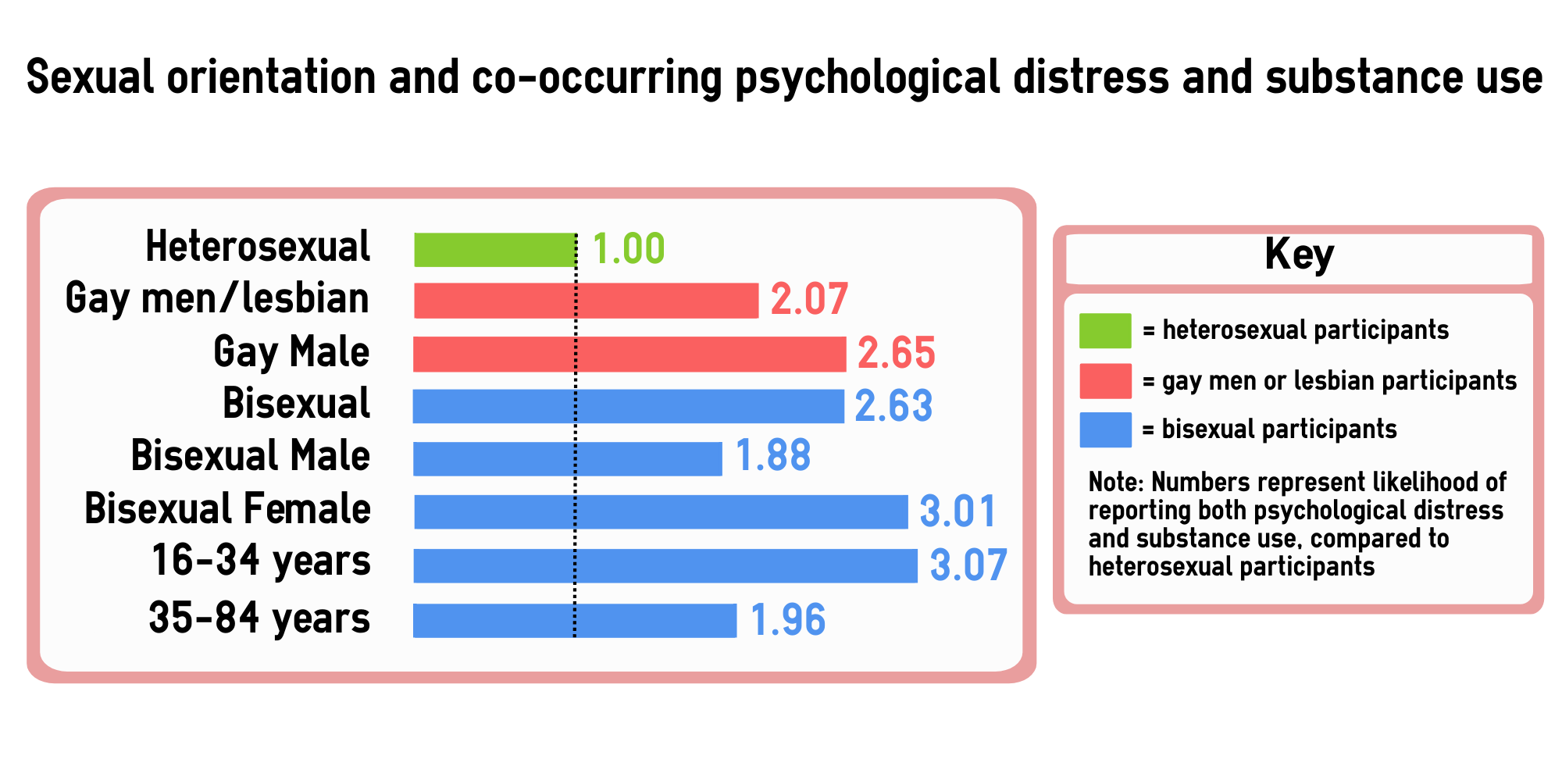STASH, Vol. 14(6) – Elevated risk for substance use and mental health problems in the LGBTQ community
Editor’s Note: The 2018 Special Series on Addiction in the LGBTQ Community is sponsored by Fenway Health—a Boston, Mass. non-profit agency that works to make healthcare a right, not a privilege, for Boston’s lesbian, gay, bisexual and transgender community and all people in their neighborhood.
People with stigmatized identities experience discrimination and segregation as a result of biases or prejudices against their identity. Fear of being stigmatized might prevent these individuals from using seeking health-related services, which can worsen health problems and exacerbate health disparities. This week, as part of our Special Series on Addiction in the LGBTQ Community, STASH reviews a study by Richard Bränström and John Pachankis that explores how people in the LGBTQ community experience both substance use and mental health-related problems.
What is the research question?
Do members of the LGBTQ community experience greater substance use and psychological distress than people who identify as heterosexual?
What did the researchers do?
The researchers used 2008-2015 data from the Swedish National Public Health Survey (SNPHS), a nationally representative survey of the Swedish population. The SNPHS asked 79,568 participants questions about sexual orientation (i.e., heterosexual, bisexual, homosexual, or not sure), substance use behaviors (i.e., past-12-month frequency of heavy drinking and cannabis use, and daily tobacco smoking habits), and psychological distress (e.g., “Over the past few weeks, have you been able to enjoy your normal day-to-day activities?”). The researchers used logistic regression analyses to assess whether sexual orientation related to reporting both psychological distress and substance use behaviors.
What did they find?
Participants who identified as gay or lesbian were more than twice as likely as participants who identified as heterosexual to report co-occurring psychological distress and substance use behaviors. (See Figure 1). Men who identified as gay were 2.65 times more likely to report these problems. Participants who identified as bisexual reported the most problems, especially if they were both female and identified as bisexual, or 16-34 years old.

Figure. Adjusted Odds of lesbian, gay, and bisexual identifying participants reporting both psychological distress and substance use, compared to heterosexual participants. Note: Only statistically significant comparisons are included in the figure. Click image to enlarge.
Why do these findings matter?
Substance use and mental health-related problems might be higher among people who identify with the LGBTQ community than among people who identify as heterosexual. Importantly, these problems vary across the unique experiences of these individuals. Healthcare providers can reduce distress among this population by screening early for substance use and mental health-related problems, and help reduce the burden of seeking treatment by tailoring programs to address the unique identities of each individual.
Every study has limitations. What were the limitations in this study?
The SNPHS did not ask questions about rates of treatment utilization or how participants thought about approaching treatment providers. Knowing these details might inform programs and treatment providers seeking to reduce rates of substance use and mental health-related problems among these populations. The SNPHS invited 160,096 people to participate in their study, but only 49.7% (i.e., 79,568 individuals) responded to the survey. The individuals who chose not to participate in this study might experience different substance use and mental health-related problems than individuals who chose to participate in this study.
For more information:
Fenway Health offers substance use treatment services designed for members of the LGBTQ community in Boston, Massachusetts. Access to other addiction help resources can be found on the BASIS addiction resources page.
— Pat Williams
What do you think? Please use the comment link below to provide feedback on this article.